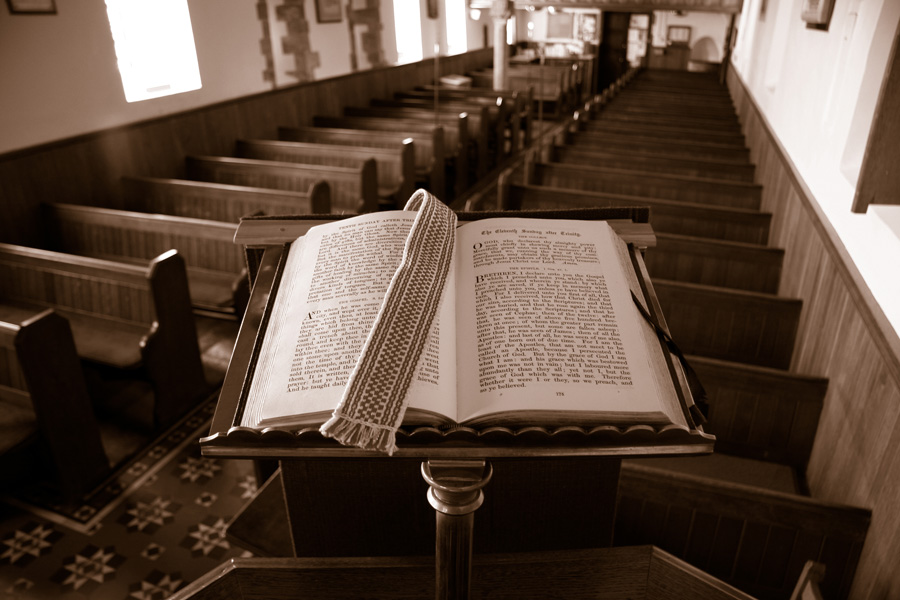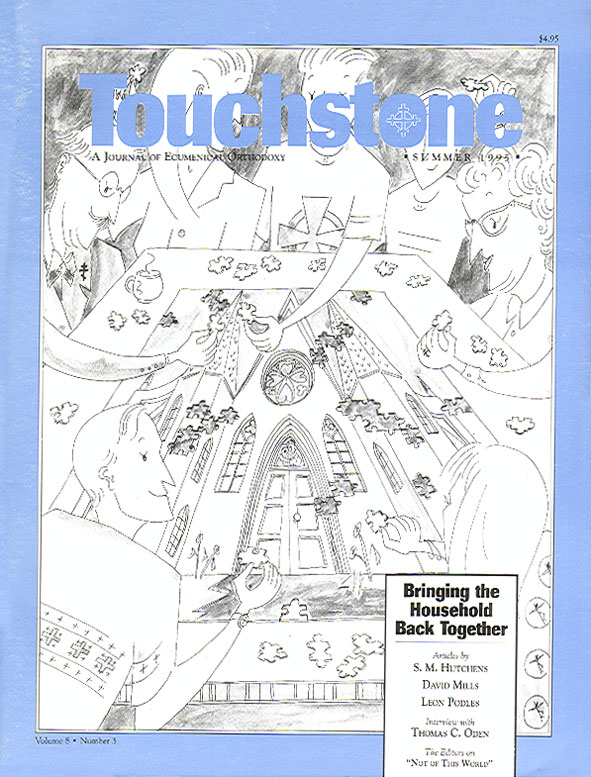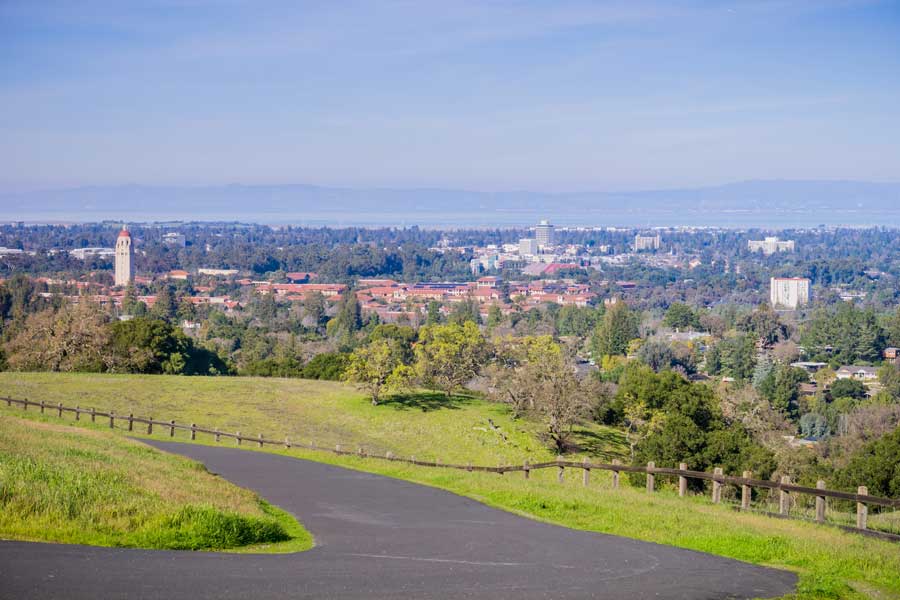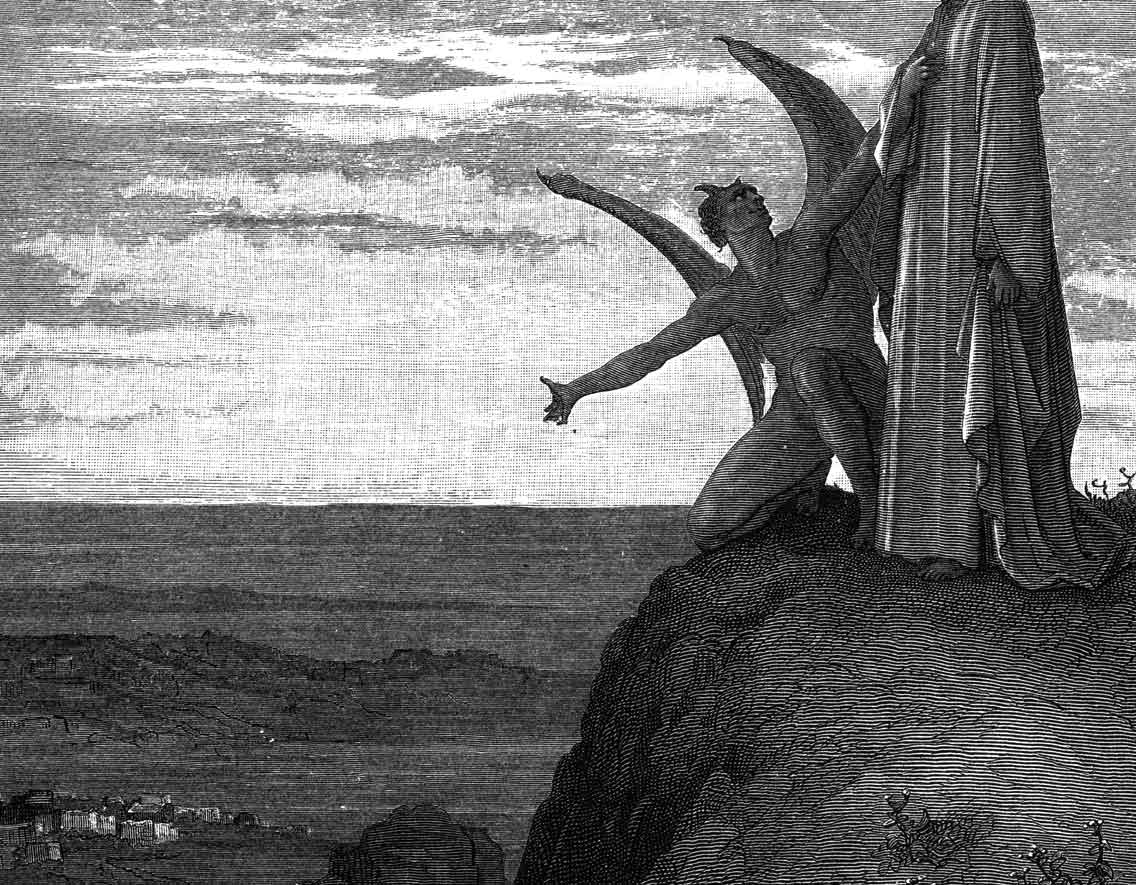The Pope & the Buddhists
On his visit to the Far East this past year, Pope John Paul II was shunned by certain Buddhist monks for having written critically of their religion. Let me say that I very rarely find myself in disagreement with the pope, and this is not one of those times.
It has never been clear to me why it should be inappropriate to knock someone else’s religion. How is it that we may with impunity flay a person’s philosophy, reprove his politics, scoff at his economics, rebuke his behavior, excoriate his cuisine, censure his wardrobe, and deride his haircut, but never utter a word critical of his religious views? Why should religion alone be off limits?
Now suppose that we held the pope himself to this popular line of reasoning. Let us imagine, for a moment, that the Holy Father was expected to adhere solely to those high and hearty cultural standards exemplified in, say, People magazine or the call-in comments on Larry King Live. In such a case it would have been all right for him to have chanced some unfavorable comment on the saffron robes of the Buddhist monks or to have complained that the unbearable din of their prayer wheels was keeping him awake at all hours. Then, rolling his eyes at the sight of their shaved heads, he might have gone on to wonder out loud where on earth they found their barbers. Yet, still adhering to the same contemporary standards, the pope must stop short of criticizing the theology inside those Buddhist heads. One presumes also that this more modern approach would have left the monks themselves free to ridicule the pope’s accent, cast aspersions on the cut of his white cassock, and go “yuck” at his breakfast sausages.
Pursuing the same cultural perspective of our now enlightened world, it would have been perfectly acceptable for Elijah, as long as he did not unfavorably mention their religion, to have censured the prophets of Baal for a host of other offenses. He could have palmed his hands over his ears, for example, complaining that they sang off key, or he might have shut his eyes tightly so as not to endure the sight of their baggy trousers. He might even have held his nose against their neglect of underarm protection. The single item for which he would not have been permitted to find fault with them, however, happens to have been the very point that he did, in fact, hold against them: that they were prophets of Baal. Everything but their theological views would have been fair game.
Now what the pope did was to draw mildly critical attention to the reasonable inference that, insofar as the Buddha himself was skeptical about the existence of a Supreme Being, Buddhism would be hard put to escape the adjectives “nihilistic” and “atheistic.” In doing this, the Holy Father was apparently hinting at what he believes to be a certain superiority of Christianity to Buddhism. He was suggesting, that is, a level of intellectual advantage of his own religion over the other one. What is so outrageous about that? It is hard to see how he could have done less and still call himself the pope.
Back in the sixth century B.C. the founder of Buddhism, Siddhartha Gautama, by reinterpreting the relationship of karma to samsara, and denying the permanence of the atman, was at least implicitly criticizing his native Hinduism, and it is a fact of history that most Hindu thinkers did not like it much. Why now, all of a sudden, has it become so important not to be critical of someone else’s religion?
That incident of the pope and the Buddhists reminds me of a photo in an Episcopal diocesan paper a few years ago, in which was captured that oh, so precious moment when Newark’s Episcopal bishop, John Shelby Spong, stood devoutly before a statue of the Buddha. This was a truly remarkable scene. Possibly the only known photograph of Bishop Spong at worship, it exemplified the mushiness of a Christian temper deprived of clear thought and a prophetic edge. The gentleman in the picture continues to this hour to publish voluminous writings spewing contempt on almost every cherished tenet of the historical Christian faith, but there he was, standing uncritically before an image of the Buddha. When several of my Episcopal friends inquired if I didn’t think the bishop was thereby sinning, I responded that he was at least showing signs of some very disturbing karma.
But why is it so unacceptable nowadays to criticize someone’s religion? The usual answer has to do with “sincerity.” We are told not to be judgmental of any beliefs that are “sincerely held.” Really? We may not reprove the religion of Moloch for sacrificing infants, for example, on the presumption that those who adhered to that religion were sincere about it? We may object to fiscal conservatism or political liberalism purely on the merits of their logic and perceived propriety, but we may criticize Unitarian theology, say, only in those cases where it is insincerely held? What, pray tell, is so redemptive about sincerity in the matter of religion? Why, among all human interests, should religiously held views alone be exempt from criticism on the mere consideration of their sincerity? Believe me, I ask this question sincerely.
—Patrick Henry Reardon
Patrick Henry Reardon is pastor emeritus of All Saints Antiochian Orthodox Church in Chicago, Illinois, and the author of numerous books, including, most recently, Out of Step with God: Orthodox Christian Reflections on the Book of Numbers (Ancient Faith Publishing, 2019).
subscription options
Order
Print/Online Subscription

Get six issues (one year) of Touchstone PLUS full online access including pdf downloads for only $39.95. That's only $3.34 per month!
Order
Online Only
Subscription

Get a one-year full-access subscription to the Touchstone online archives for only $19.95. That's only $1.66 per month!
bulk subscriptions
Order Touchstone subscriptions in bulk and save $10 per sub! Each subscription includes 6 issues of Touchstone plus full online access to touchstonemag.com—including archives, videos, and pdf downloads of recent issues for only $29.95 each! Great for churches or study groups.
Transactions will be processed on a secure server.
more from the online archives

8.4—Fall 1995
The Demise of Biblical Preaching
Distortions of the Gospel and its Recovery by Donald G. Bloesch
calling all readers
Please Donate
"There are magazines worth reading but few worth saving . . . Touchstone is just such a magazine."
—Alice von Hildebrand
"Here we do not concede one square millimeter of territory to falsehood, folly, contemporary sentimentality, or fashion. We speak the truth, and let God be our judge. . . . Touchstone is the one committedly Christian conservative journal."
—Anthony Esolen, Touchstone senior editor








